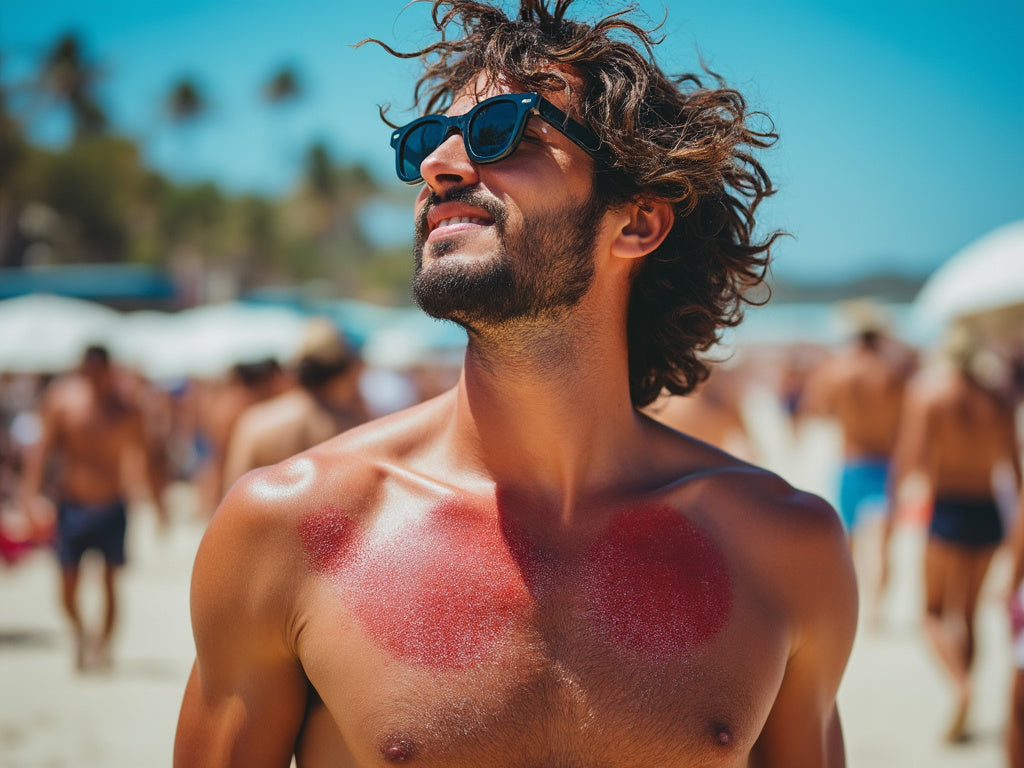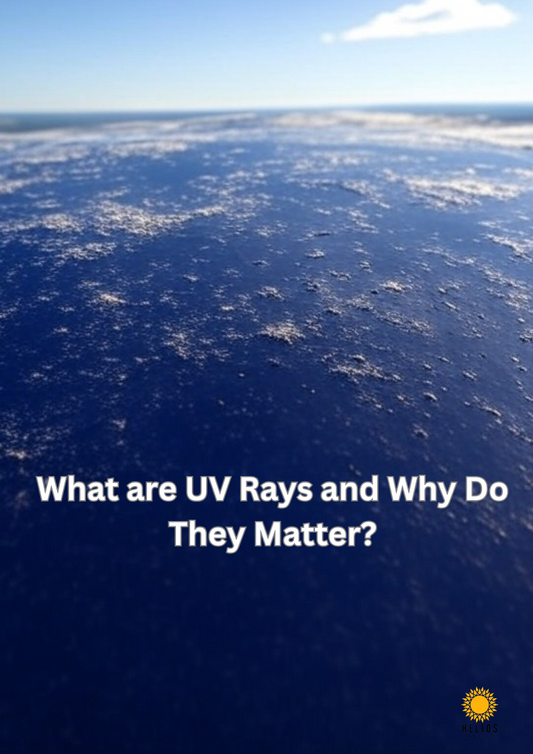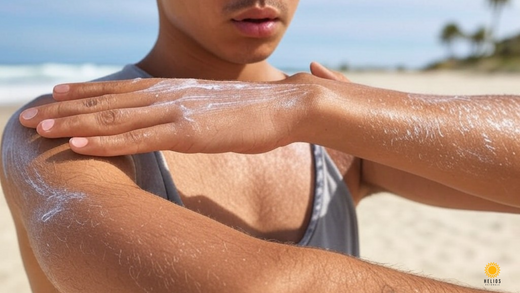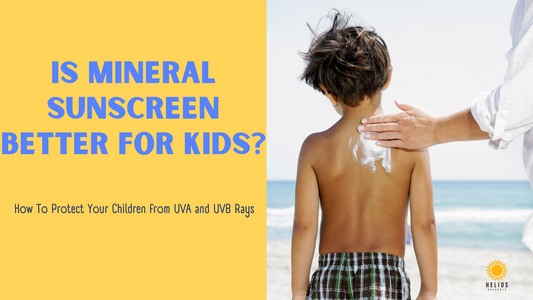
What happens when you get sunburn?
Share
What happens to your skin when you get sunburn?
It’s happened to all of us at least once. You’ve been there before. You’re enjoying a day at the beach, you’re relaxing getting in and out of the ocean. Life’s good!
Until you finally get out of the sun, you realize the dreaded red skin and you suddenly realize the next week is going to be itchy and painful.
Whether you’re dreading lying down or itchy from peeling, sunburn sucks! No matter where it occurs. It’s crucial to prevent sunburn
What is Sunburn?
When your skin is overexposed to the sun, UV rays, it triggers a response in the body. When UVB rays penetrate your skin for an extended amount of time, it damages your skin.
To protect the body, the immune system increases blood flow to the burnt areas. This is why your skin turns red from sunburn.
To repair the damage, the body makes the skin red, painful, and at the end it peels off. Kind of like beef jerky. While this is a short-term effect, repeated burning can lead to aging skin and potentially skin cancer like melanoma.
What Are The Immediate Effects of Sunburn?
As soon as your body becomes overexposed to the sun, here’s the most common symptoms of sunburn:
-
Redness and Inflammation: One of the first signs of sunburn is redness, which occurs due to increased blood flow to the affected area. This is your body's way of trying to repair the damage.
-
Pain and Tenderness: Sunburned skin is often painful because UV exposure damages the nerve endings in the skin, causing sensitivity.
- Peeling: After a few days, you may notice your skin starts to peel. This is because the body is shedding damaged cells as part of the healing process.
How can I avoid getting sunburn?
As mentioned, sunburn comes from being overexposed to the sun. It depends on Most people can only tolerate the sun from 20-40 minutes of unprotected exposure before getting sunburnt.
The best method is prevention. To prevent getting sunburn it’s important to get some shade, wear UV resistant clothing, and of course sunscreen.
If you’re at the beach and you’re getting in and out of the water, it’s important to take a break from the sun and reapply under shade to allow the sunscreen to settle in.
Why Does Sun Protection Matter?
It’s important to manage your exposure to the sun to prevent UV damage that leads to advanced aging.
While sunscreen can help protect your skin from sunburn, it can only do so much if you're exposed for prolonged amounts of time. It’s far better to take breaks from the sun by using shade when you start to feel like you've had enough sun.
FAQ of Sunburn
Can you get sunburned on cloudy days?
Yes. UV rays still penetrate through clouds causing sunburn. You are more likely to get sun burn on cloudy days because you don't "feel" the burn coming on.
What should you do if you get sunburn?
Apply aloe vera or a moisturizing lotion to soothe your skin.
Does a tan prevent sunburn?
While a tan does not necessarily prevent sun burn, a tan will drastically increase your ability to tolerate sun exposure.



